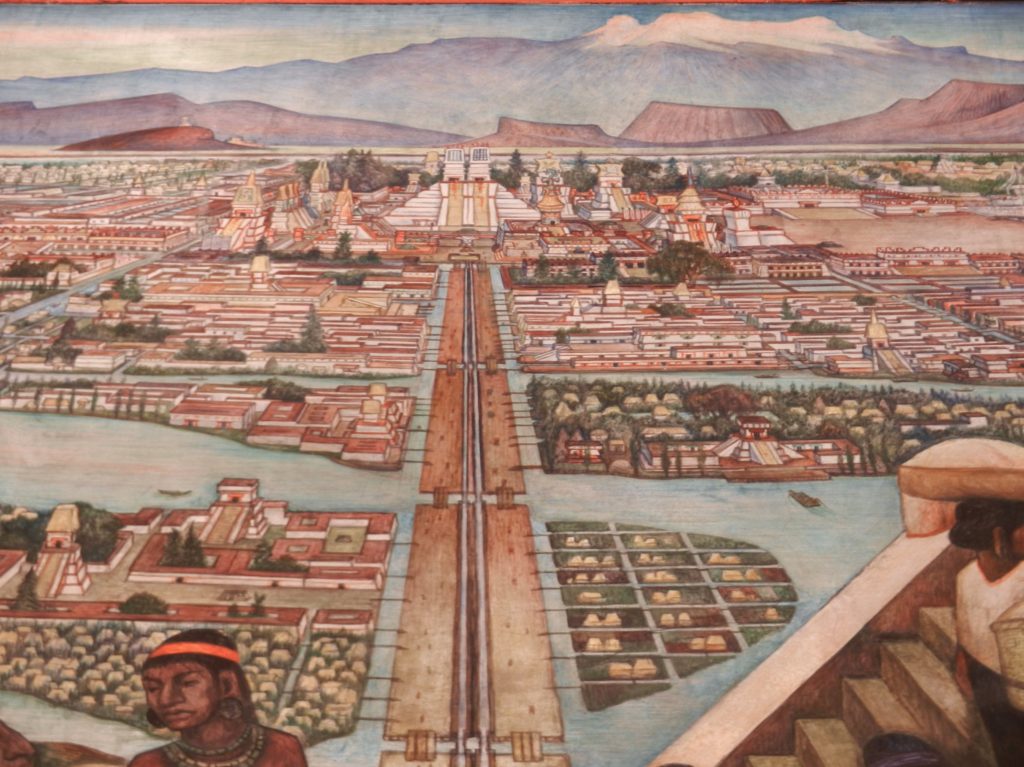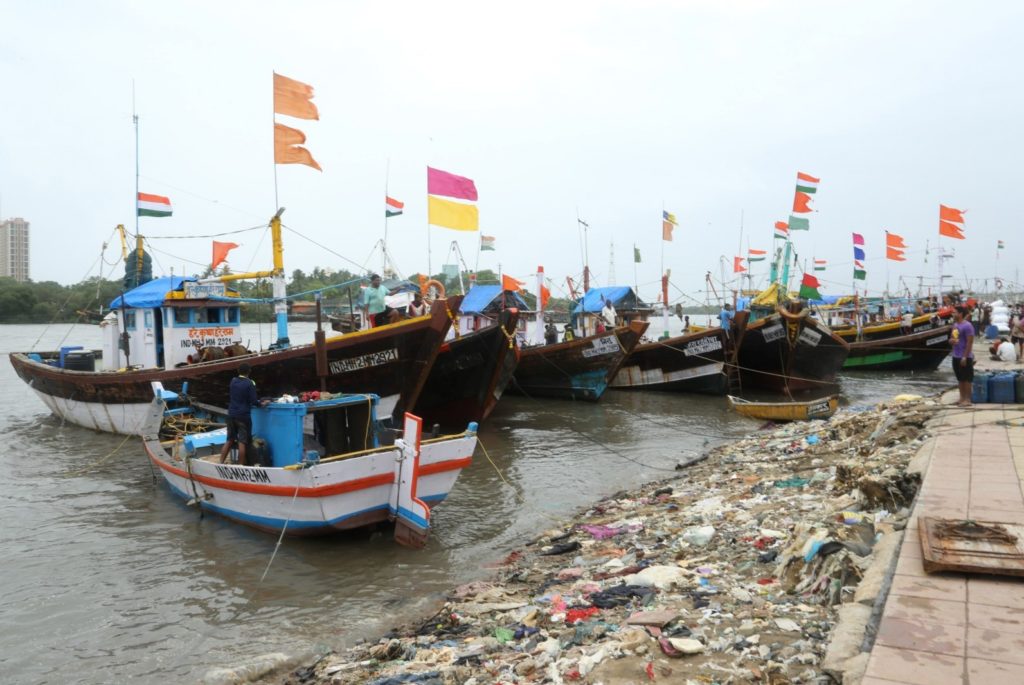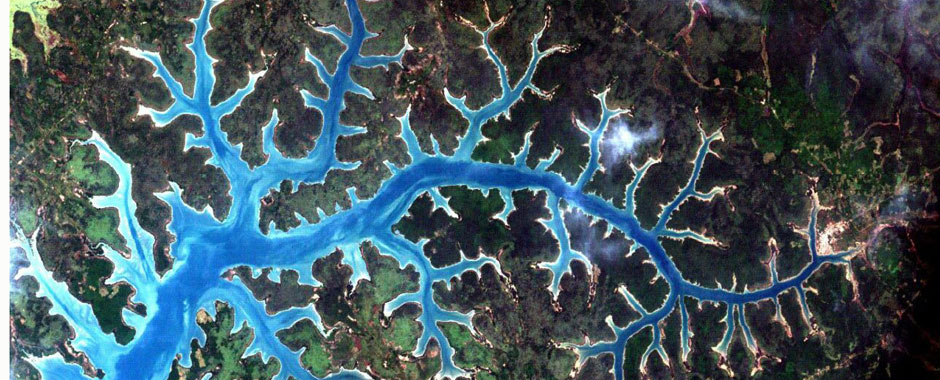by Saurabh Arora and Andy Stirling
UPDATE – 12 May 2021: Timothée Parrique, researcher and author on degrowth, has posted a response to this essay on his website.
“And then all helplessly we peered into those Other-worlds, and wailed, “O World of Worlds, how shall man make you one?””
W.E.B. Du Bois, The Souls of Black Folk, 1903
It is just over the past decade – as the many worlds of the pluriverse are at last being foregrounded by scholars – that degrowth discourses are becoming increasingly popular. For its proponents, this growing popularity indicates the coming together of a degrowth movement, which foregrounds not only resistance against the “overshooting of planetary boundaries”, but also experiments with alternative modern lifestyles based in commoning, caring, simplicity, conviviality and autonomy.
Some degrowth proponents recognise that colonial pillage is central to historic economic growth in Europe and North America. Resulting structures of global extraction continue this legacy in the present day. All this means that decolonization is already rightly debated within degrowth discourses. While some use decolonization as a metaphor for freeing social imagination from the clutches of economic growth, others go further by linking degrowth to sustaining pluriversal alternatives.
However, given that degrowth points to “planned yet adaptive … downscaling of the economy”, one critical issue is overlooked. When it comes to economic and political structures, what if topology matters at least as much as scale?
The word topology draws attention to the patterns of social relations – both among people (as mediated by discourses, institutions and practices) and more materially with ‘nature’ (as mediated through technologies, economies and ecologies). Just as a doughnut can be moulded into a cup without a change in topology, so the underlying patterns of socio-material relations don’t fundamentally change just by shifts in size and shape of the constituting elements.

So the mere stretching or squeezing of material throughput – ‘growth’ or ‘de-growth’ – does not necessarily change the topology. And a crucial point about the pluriverse is that there is a rich diversity of socio-material topologies. These entail radically different ways of living, knowing and relating (eg through domination or equality; commodification or commoning; cooperation or competition; paternalism or mutualism; spirituality or scientism; hope or fear; hospitality or xenophobia; violence or peace; extractivism or conviviality; control or care; love or hate).
Such crucial distinctions of topology can be entirely missed by a focus merely on scale. By overly fixating simply on magnitude (as material output or throughput), different patterns of relations can be overlooked.
After half a millennium of colonial destruction of the Earth’s pluriverse, it is long overdue that such distinctions be recognised. We strongly support the degrowth argument if it is restricted to extractive topologies associated with currently globalising forms of Modernity – constituted by (colonial) control of territories and peoples for pillage. But we call equally strongly for greater recognition of the importance of growth in other topologies – constituted by myriad other ways of living and knowing in the pluriverse. This means asking what kinds of transformations are necessary across Modern knowledges, cultures, institutions and economies, not just to degrow, but also to restructure the relations that are inexorably pillaging the pluriverse. How can alternative topologies of the pluriverse grow radically (rather than degrow) in the 21st century?
Will Northern ‘degrowth’ on its own really contribute to this regrowing of a pluriverse – as an intercultural thriving of ‘a many worlds world’? Or, suffering from the same disease as growth (in its focus on magnitude rather than topology), will degrowth succumb to a familiar colonial/Modern rationality that fixates on quantity at the expense of qualities? Will pluriversal ways of living and knowing thereby continue to be overlooked, disqualified and displaced?

There is enough complexity in these debates for many possible answers. Responses to these questions centrally depend on how the degrowth movement frames not only the ongoing socio-ecological crises and catastrophes, but also the plural alternatives to growth-driven ways of living in Modernity.
For some of these plural alternatives, degrowth has formed a powerful platform. But this often comes more from the surrounding political cultures, than the core distinctive focus on growth itself. If the call for ‘degrowth’ is not to prove as harmful to the pluriverse, as is obsession with its flipside of growth, then more careful thought and action may be needed.
Pluriversal catastrophes
Colonial pillage across the Global South and North (through settler colonialism), lies at the heart of Modern capitalist economies. Estimates indicate that colonialism reduced India’s share of the world economy from 24-27% in pre-colonial times to just 3-4% by 1947, when the British finally left. Even in absolute terms, it is estimated that GDP per capita in India fell by an annual rate of 0.22% between 1913 and 1950.
Similarly, China’s share of the world economy was reduced from 35% to 7% as a result of unequal terms of trade forced by the British after the Opium Wars. Indeed, much has been written about impoverishment produced in the colonies through European rule. However, such accounts focus on magnitude. They tend to overlook the concurrent implications of this subordination for the pluriverse that existed in pre-colonial times.
By enslaving and indenturing people, looting resources, shrinking economies, suppressing cultures, furthering heterosexual patriarchy, wiping out languages, marginalising craft production, blocking knowledge traditions, criminalising radical difference (not only anticolonial dissent but also transgressive sexualities), extracting value from deforestation, and controlling ‘customary’ governance, colonialism did not just diminish in scale the social and material bases of colonised people’s ways of living. It actively destroyed many cultural, ecological, technical and institutional topologies.

What many of these topologies so crucially displayed was not only their individual differences with respect to the particular oppressive forms of European coloniality: it was also the collective multiplicity of richer, deeper, more intimate intercultural relations – and the resulting greater abilities and readiness to accommodate and embrace a world of many worlds.
To see this does not imply romanticising the individual worlds of the pluriverse. All cultures surely have their regressive strands and egalitarian struggles. But, additionally devastating on the back of colonial violence, has been the suppression and destruction of social and material plurality of worlds, to yield a stifling global monoculture of burgeoning Modernity. It is this colonial dynamic constituting the ‘one world world’ of Modernity, that degrowth can too easily miss.
Pluriversal topologies – or ways (not just scales) of relating to each other and the Earth –have been extremely diverse across (postcolonial) societies and ecologies. They include relating with some animals and plants as persons, with forests as powerful and sacred forces, and with other worlds through intercultural hospitality. Under colonialism, such relational ways were ‘inferiorised’ as savage, primitive, naïve, irrational, superstitious, unproductive, and unchanging. To focus merely on scale risks being tacitly complicit in this injustice.
Under the late colonialism of the 20th century, due to anti-colonial resistance, brutal ‘inferiorisation’ was substituted by some acknowledgment of cultural differences. But even then, colonised ways of knowing were still viewed as lacking scientific rationality and conceptions of rights. This meant that, while plurality in domains of religion and spirituality was now reluctantly tolerated in some territories, the plurality of rationality of equal knowledges and sciences was still disallowed.
As a result, while globalising colonial structures came to tolerate – even license – a world of plural cultures in various steeply stratified ways, pluriversal worlds of knowledge, technology, science and ‘nature’ remained under attack. This was carried into the post-colonial era by nationalist elites like Nehru and Nyerere, who promoted Modernising development at the expense of pluriversal worlds. Implicitly taking for granted an economic denominator of ‘growth’ risks compounding this injustice.
Overall, then, the era of Modern economic growth has been an era of pluriversal destruction. It is crucial for degrowth discourses to recognise this history, in order to not reproduce the effects of colonialism on pluriversal topologies. And it is here that blindness to differences in socio-material topologies may be as dangerous in visions of degrowth, as it is in mainstream visions of growth.
Below we offer a proposal on how a recognition of Modern topologies as constituted by coloniality can be helpful for realising decolonial forms of degrowth.
Behind the growth affliction: Modernity
Economic growth is a Modern obsession, driven by nation-states carved largely through colonial encounters. As Gandhi recognised long ago (1909), colonialism did not just entail the domination and control of non-European territories by Europeans, but also the extension of Modernity: “India is being ground down, not under the English heel, but under that of modern civilization.” Modern topologies of control and extraction, which underpin obsessions with economic growth, were thus realised through colonialism.
Here, ‘trickle down’ from growth was (and is) a means to insulate and contain the effects of rising inequalities – in metropoles as well as in the (formerly) colonised territories. Forged in this same coloniality, not least through resistance and negotiation by the colonised, alternative Modernities are saturated with congruent topologies of control.
For instance, controlling ambitions pervade relations with and within diverse Modern cultures, pointing to the imagined control of reason by Science; (agricultural) production by Industry; mobilities by Infrastructures; identities by Nations; governance by Bureaucracy; sociality by (racial) Capitalism; objectified nature by Culture; genders and sexualities by Heteropatriarchy; and ‘othered’ peoples by an ostensibly rational Self – manifesting as racism and xenophobia in everyday life.
Now, in the so-called ‘Anthropocene’ epoch, these diagnostically controlling habits of Modernities metastasize through environmentalism into imagined control of the entire Earth.
How better to maintain an empire on which the sun might really never set, than to imagine this with breathtaking hubris as a geological destiny? In this apotheosis of imperial ambition, it is a notionally homogenised ‘humanity’ that is “taking control of Nature’s realm”, brooking “no compromise” in a supposedly “non-negotiable” imperative to manage “the control variables” as “a self-conscious control force that has conquered the planet”.
Unfortunately, commitments to environmentalism or humanism fail on their own to provide an antidote to these hubristic fantasies, fallacies and fixations of control that underlie contemporary Modernities. The lessons are relevant not just to growth, but to degrowth too.
When these encompassing topologies of control are recognised, it is clear to see that coloniality of Modernity goes beyond obsessions with growth. Where it is situated in a ‘one world world’ of a homogenised ‘humanity’, then it is not only ‘growth’ but also ‘degrowth’ that can perpetuate Modernist topologies of control.
If all that Modernity has pillaged, extracted and reduced over the centuries is to be restored, repaired – and especially regenerated – then this grappling with topologies of control is crucial. Equally essential is the prioritising of attention to alternative topologies of relations between humans, animals, plants, materials, rhythms, knowledges, and philosophies that other worlds of the pluriverse have so carefully assembled and nurtured over millennia. Without this, degrowth might – for all the good intentions – become as colonial as growth.
Degrowing Modernity for a convivial pluriverse?
We urge degrowth proponents to do three things: distinguish socio-material topologies from size and shape, prioritise pluriversal differences over homogenising tendencies, and critically recognise obsessions of growth as situated within control-driven Modernities.
If these crucial distinctions and connections are not made, degrowth can inadvertently re-enact the presumed superiority of Modern developments over alternative topologies of the pluriverse.
Through such superiorism, continued destruction of pluriversal worlds can further unfold. This may occur if the degrowth movement attempts merely to globalise a lighter modernity, structured around decentralised renewables, public transport, and ‘unconditional basic income’. Where underpinned by coloniality, such supposedly ‘lighter’ modernities can be deemed superior to other ways of living and relating in pluriversal worlds.
In terms of magnitude, a lighter ‘degrown’ modernity may exert lower thirst for resources extracted from pluriversal worlds than the heavy Modernity of centralised grids and large-scale mining. But instruments of this ‘modernity-lite’ are also free to encroach on other worlds in topological ways. They can still displace pluriversal ways of relating, living, and knowing. So, even with degrowth, the main threat for a thriving pluriverse can still be the inexorable expansion of modern worlds that take over other worlds.
To counter this inexorable expansion, important lessons may be learnt from diverse indigenous peoples who have transformed the borders between their worlds and Modernity into zones of conviviality. In these zones, some community members choose to adopt the trappings of modernity, while practising alternative rituals and religions. With these zones serving as buffers, communities use the space beyond to protect pluriversal worlds that support their distinctive cultures, languages, knowledges, forests, and techniques.

To degrow modernities in ways that strengthen such protection, solidarities must be nurtured to transcend the single axis of growth/degrowth. What must be resisted is not just the ‘quantity’ of mainstream Modernity, but the qualitative infection even of its critical discourses, with a colonial superiorism imagining control over other worlds. Whether this is to extract resources or assert cultural hegemony, the effect is injustice and oppression.
Such superiorism must be overturned through not just equality (in magnitudes), but also decolonial diversity (in topologies) – encompassing multiplicities of ways of living and relating for knowing and acting, spanning modern and other worlds alike.
In this way, degrowth can be part of a truly intercultural revolution, helping to build a convivial pluriverse, in which not one but many worlds are sustained. This sustaining may indeed depend on the degrowth of a singular modern world. But it will also need the diversification of topologies of coexistence, care, love, peace, hope, hospitality, spirituality, commoning, cooperation, mutualism and equality across many worlds.
Such diversification involves not just a plurality of worlds (a multiplicity of topologies), but also that these be pervasively entangled in pluriversal ways (a topology of multiplicity). Any individually identifiable world is (re)made through this world of worlds that relate to each other. Only by overturning coloniality in these relations, and by privileging intercultural conviviality, can divergent ways of living and knowing coexist and thrive with each other.
This blogpost elaborates on a strand of discussion that began in a recent seminar on degrowth by Federico Demaria of UAB Barcelona, jointly organised by the STEPS Centre with SPRU and the School of Global Studies at the University of Sussex.
